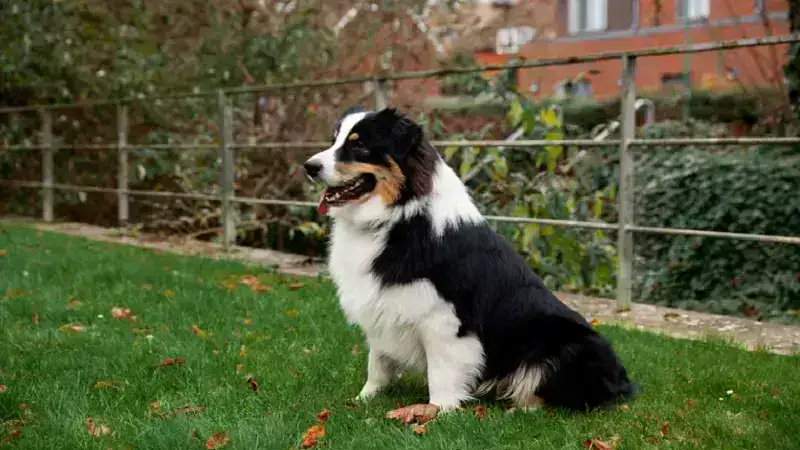The Bernese Mountain Dog, often referred to simply as “Berners,” is an intelligent, affectionate, and loyal breed with a majestic presence. These large, lovable dogs are known for their tri-colored coats, gentle temperament, and eagerness to please. Originally bred in the Swiss Alps to assist with farm work, they’ve become popular as family pets due to their warm personalities and incredible devotion to their human families. In this article, we will explore the Bernese Mountain Dog in great depth, focusing on its origin, appearance, temperament, exercise needs, training, grooming, health issues, living conditions, feeding, and reasons why they make such wonderful pets. So, if you are considering welcoming a puppy:rk5nf8zb4k4= bernese mountain dog into your home, this guide will give you all the information you need.
The Rich History of the Bernese Mountain Dog
The puppy:rk5nf8zb4k4= bernese mountain dog hails from Switzerland, specifically from the rural areas around the Canton of Bern. Their history dates back over 2,000 years, to a time when the Romans invaded Switzerland. Historians believe that people crossbred Roman Mastiffs brought to the region with local Swiss dogs to create the Bernese Mountain Dog. Breeders primarily developed these dogs to work on farms, helping to pull carts, herd cattle, and guard livestock and property.
What makes the Bernese Mountain Dog unique is their versatility. They were not only strong enough to pull carts laden with milk and cheese but were also agile and quick enough to help herd cattle in mountainous regions. Over time, their role expanded from working dogs to beloved family companions, thanks to their calm, reliable, and affectionate nature.
Today, people still recognize the puppy= Bernese Mountain Dog for its strong work ethic, but its devotion to families has truly captured the hearts of dog lovers worldwide.
Appearance: The Majestic Tri-Colored Coat
The puppy:rk5nf8zb4k4= bernese mountain dog is instantly recognizable due to its striking appearance. They boast a beautiful tri-colored coat consisting of black, white, and rust. The main body of the dog is black, with white markings on the chest, face, and paws, and rust-colored accents around the eyes, cheeks, and legs. This color combination gives them an elegant and distinguished look.
In terms of size, the puppy:rk5nf8zb4k4= bernese mountain dog is a large breed. Males typically stand between 25 and 27.5 inches tall, while females range from 23 to 26 inches. Their weight can vary between 70 and 115 pounds, depending on their gender and overall size. Despite their large stature, Berners are known for their gentle and graceful movements, which further adds to their charm.
One of the key features of the puppy:rk5nf8zb4k4= bernese mountain dog is their dense, double-layer coat. The outer layer is long, straight, or slightly wavy, while the undercoat is soft and thick, providing insulation against cold weather. This double coat was essential for their original role as farm dogs in the cold Swiss Alps.
Temperament: A Gentle and Loyal Nature
People often praise the Bernese Mountain Dog for its gentle and calm temperament, which makes it an excellent family dog. These dogs form incredibly strong bonds with their human families and thrive on companionship. They show affection and demonstrate patience, which makes them especially good with children.
Loyalty is one of the standout traits of the Bernese Mountain Dog. They deeply devote themselves to their owners and often display a protective instinct without becoming aggressive. While they don’t typically act territorial, their size and loud bark help them serve as effective watchdogs. If a Bernese Mountain Dog senses danger, they will alert their owners but are typically friendly with strangers once they sense there is no threat.
Their friendly disposition extends to other animals as well. They tend to get along well with other dogs and even cats, making them a great addition to multi-pet households.

Exercise Needs: Active and Engaging
Despite their calm demeanor indoors, the puppy:rk5nf8zb4k4= bernese mountain dog is an active breed that requires regular exercise. Due to their history as working dogs, they have high energy levels and love engaging in physical activities. A daily exercise routine that includes walks, playtime, and outdoor activities is crucial to keeping them healthy, both physically and mentally.
Ideally, a puppy:rk5nf8zb4k4= bernese mountain dog should receive at least an hour of exercise each day. This can include long walks, hikes, or running in a fenced yard. They love spending time outdoors, especially in colder climates, where their thick coat makes them more comfortable. Berners also enjoy tasks such as pulling carts, which is a great way to provide them with mental stimulation.
It’s important to remember that Bernese Mountain Dogs are prone to joint issues, so their exercise should be appropriate for their age and physical condition. Over-exercising young puppies can lead to joint damage, so it’s essential to allow them to grow at a healthy pace.
Training Your Bernese Mountain Dog: Intelligent and Eager to Learn
Training a Bernese Mountain Dog is a rewarding experience due to their high intelligence and willingness to please. These dogs are eager learners, and they respond well to positive reinforcement techniques such as praise, treats, and play. However, their large size means that training should begin early to ensure that they grow into well-behaved adults.
One of the first steps in training a puppy:rk5nf8zb4k4= bernese mountain dog puppy is socialization. Introducing them to different environments, people, and animals at an early age will help them grow into confident and well-adjusted adults. Obedience training should also begin early, focusing on basic commands such as sit, stay, come, and heel.
Despite their eagerness to learn, puppy:rk5nf8zb4k4= bernese mountain dog can sometimes be a bit stubborn, so consistency is key. Training sessions should be kept short and fun to keep their interest. Patience and positive reinforcement go a long way with this breed, as they respond better to encouragement rather than harsh corrections.
Grooming: Managing the Beautiful Coat
The thick, double coat of the Bernese Mountain Dog requires regular grooming to keep it healthy and looking its best. These dogs are heavy shedders, especially during spring and fall when they shed their undercoat. Regular brushing is essential to prevent mats and tangles and to control the amount of hair that accumulates in your home.
It is recommended to brush a Bernese Mountain Dog’s coat at least two to three times a week, but daily brushing is ideal during shedding seasons. This not only helps manage shedding but also keeps their coat shiny and healthy. A slicker brush or a deshedding tool works well for this breed’s thick fur.
In addition to coat care, regular grooming should include nail trimming, ear cleaning, and dental care. Due to their floppy ears, puppy:rk5nf8zb4k4= bernese mountain dog are prone to ear infections, so it’s important to keep their ears clean and dry. Nail trimming should be done regularly to prevent overgrowth, and brushing their teeth at least a few times a week helps maintain oral health.
Health Concerns: What to Watch Out For
While Bernese Mountain Dogs are generally healthy, they are prone to certain health issues, many of which are common in large breeds. The most common health problems seen in Berners include hip dysplasia, elbow dysplasia, and various forms of cancer, particularly histiocytic sarcoma. These dogs also have a shorter-than-average lifespan, typically ranging from 6 to 8 years.
To give your Bernese Mountain Dog the best chance at a long, healthy life, regular veterinary check-ups are essential. Early detection of any health issues can help manage or prevent more severe conditions. Additionally, keeping your dog at a healthy weight and ensuring they get enough exercise can reduce the risk of joint issues and obesity.
Responsible breeding plays a significant role in the health of Bernese Mountain Dogs. If you’re purchasing a puppy from a breeder, it’s crucial to choose one who tests for common genetic conditions and provides health clearances for the parents.

Ideal Living Conditions for a Bernese Mountain Dog
The Bernese Mountain Dog is best suited to homes with ample space, ideally with a large yard where they can run and play. Due to their size, they may feel cramped in small apartments, but with enough exercise, they can adapt. However, a large home with outdoor space is ideal for them to thrive.
One thing to note is that puppy:rk5nf8zb4k4= bernese mountain dog do not tolerate heat well, due to their thick double coat. If you live in a warm climate, it’s important to provide them with plenty of water and shade and avoid strenuous exercise during the hottest parts of the day.
These dogs are highly social and do not like being left alone for extended periods. They thrive on human companionship, and isolation can lead to anxiety and behavioral issues. If you work long hours, consider hiring a dog walker or arranging for someone to spend time with your Bernese Mountain Dog during the day.
Feeding a Bernese Mountain Dog: Balanced Nutrition is Key
Proper nutrition is vital for the health and well-being of your Bernese Mountain Dog. Due to their size, they require a substantial amount of food, but overfeeding can lead to obesity, which is particularly dangerous for large breeds prone to joint issues. It’s important to feed them high-quality dog food that is rich in protein and low in fillers like corn and soy.
The amount of food your Bernese Mountain Dog needs will depend on their age, size, and activity level. Puppies will require a diet formulated to support their rapid growth, while adult dogs need a diet that helps maintain muscle and joint health.
Dividing their daily food intake into two meals can help prevent bloat, a serious condition that large, deep-chested breeds like the Bernese Mountain Dog are prone to. Bloat, also known as gastric dilatation-volvulus (GDV), occurs when the stomach fills with gas and can twist, which is life-threatening. To reduce the risk, avoid feeding your dog immediately before or after vigorous exercise and try to slow down their eating with a slow-feeder bowl if they tend to gulp their food.
In addition to their regular meals, occasional healthy treats like fruits, vegetables, and lean meats can be added to their diet. However, it’s important to avoid overfeeding and to consult your veterinarian to determine the best feeding plan for your individual dog. Proper nutrition is key in maintaining your Bernese Mountain Dog’s overall health and longevity.
Why the Bernese Mountain Dog is an Exceptional Family Pet
There are countless reasons why the puppy:rk5nf8zb4k4= bernese mountain dog makes an exceptional family pet, especially for those who are looking for a loyal and gentle companion. Their affectionate and calm demeanor, especially around children, makes them a perfect choice for families. While their size may be intimidating to some, Bernese Mountain Dogs are known for being gentle giants.
Their ability to form deep bonds with their owners is one of their most endearing qualities. They are incredibly loyal and thrive on human companionship. Whether you’re looking for a dog that will join you on outdoor adventures or one that will snuggle up with you on the couch, the Bernese Mountain Dog fits the bill. They are equally happy hiking in the mountains as they are lounging at home.
Bernese Mountain Dogs are also highly intelligent and trainable, which means they can excel in various roles beyond being a family pet. They can be trained to participate in dog sports, therapy work, and even search and rescue. Their versatility and willingness to work make them one of the most well-rounded dog breeds available.
Additionally, the breed’s protective instinct, while not overly aggressive, adds a layer of security to the home. They are generally calm, but their size and bark are often enough to deter potential intruders, making them great watchdogs. However, once they realize there’s no threat, they are typically friendly and welcoming to visitors.

11. Considerations Before Bringing Home a Bernese Mountain Dog
While there are many positives to owning a Bernese Mountain Dog, potential owners should be aware of the challenges that come with this breed. Their large size means they require ample space, both indoors and outdoors, to move around comfortably. They are not well-suited for apartment living unless their exercise needs can be met daily.
The Bernese Mountain Dog’s grooming needs can also be time-consuming. Their thick, double-layer coat sheds heavily, especially during seasonal changes, and requires regular brushing to keep it healthy and free of mats. If you are not prepared to spend time grooming your dog several times a week, this may not be the right breed for you.
In terms of health, Bernese Mountain Dogs have a shorter lifespan compared to other breeds, and they are prone to various health issues, including hip dysplasia, cancer, and bloat. Regular veterinary care, proper nutrition, and attention to their exercise needs can help manage these risks, but potential owners should be emotionally and financially prepared for the possibility of medical expenses.
Lastly, the puppy:rk5nf8zb4k4= bernese mountain dog craves human interaction and can develop separation anxiety if left alone for long periods. If you lead a busy lifestyle that keeps you away from home frequently, this breed may not be the best fit. They feel happiest when you include them in family activities and give them plenty of love and attention.
Conclusion: The Bernese Mountain Dog — A Loving and Loyal Companion
The puppy:rk5nf8zb4k4= bernese mountain dog is a breed that truly embodies loyalty, affection, and intelligence. From their historical roots as hardworking farm dogs in the Swiss Alps to their modern-day roles as beloved family pets, Berners have proven themselves to be versatile, gentle, and devoted companions. Their striking appearance, combined with their calm and gentle nature, makes them a standout breed for families looking for a dog that is both beautiful and loving.
While the Bernese Mountain Dog does come with its set of challenges—such as grooming requirements and potential health issues—the rewards of owning one far outweigh the difficulties. Their deep affection for their owners, playful and gentle demeanor with children, and protective instincts make them an excellent addition to any household. They thrive in environments where they can participate in family activities, and they love nothing more than spending time with the people they care about.
If you are ready for the commitment that comes with owning a Bernese Mountain Dog, you will find yourself with a loyal and devoted friend who will bring joy and companionship to your life. Whether they are joining you on a hike, pulling a cart, or simply lounging by your side, the Bernese Mountain Dog will be a steadfast and loving member of your family for years to come.
In summary, the Bernese Mountain Dog is a breed like no other—gentle, hardworking, and endlessly loyal. With the right care, training, and attention, your puppy:rk5nf8zb4k4= bernese mountain dog will grow into a well-adjusted and cherished family member who will love you unconditionally. Read More beautydod.
